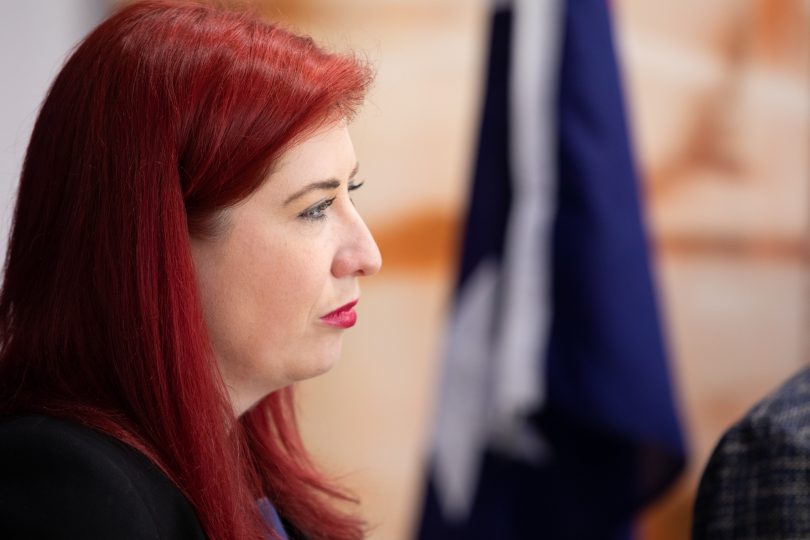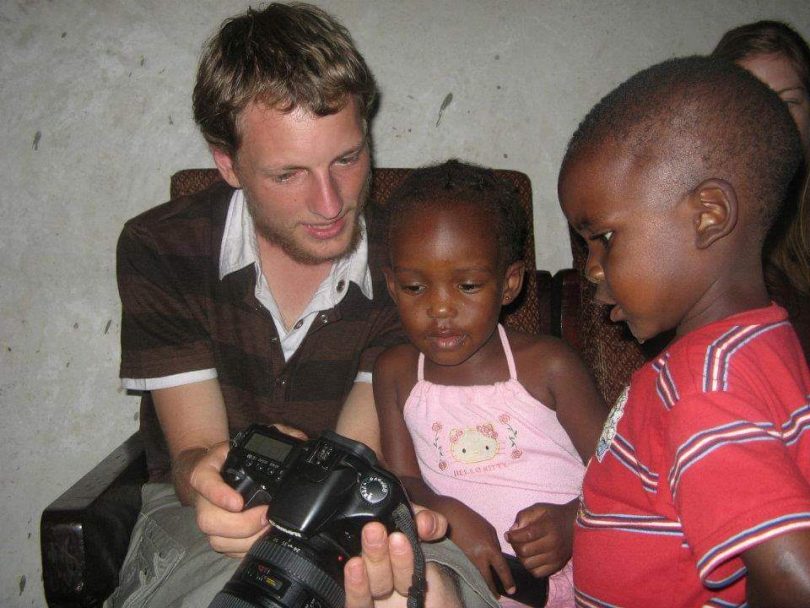
Human Rights Minister Tara Cheyne introduced the Australian first legislation allowing family members of deceased donors to have their donation acknowledged on death certificates. Photo: Michelle Kroll.
Families of organ donors in the ACT can now have their loved one’s donation acknowledged on the donor’s death certificate and on the death register from today (6 May).
The donor’s next of kin can apply to have the statement “The deceased gave a gift of life, generously donating organs/tissue” added to their death certificate, and can also request a letter from the Chief Minister recognising the deceased person’s donation.
Chris Fonda, whose partner Quinn died and donated his organs in 2018, said the decision to donate a loved one’s organs or tissue is difficult for families who have just gone through a huge loss.
“Even though the grief is still with me, knowing part of Quinn lives on in others feels like he still exists and gives transplant recipients life to cherish as much as I cherished Quinn,” Mr Fonda said.
“Quinn gave the gift of life to complete strangers, which reinforces his selflessness and altruistic nature in his life on earth.”
Mr Fonda said having the donation acknowledged by the Chief Minister meant a lot to him and how he remembers his partner.

Stewart Orme’s donation helped save six lives after he tragically lost his life in 2012. Photo: supplied.
Helen Day, whose son Stewart Orme, 23, died in a motorcycle accident in 2012, also pushed for the reform, saying it would help his memory and his actions live on.
Stewart’s organ donations went to six people, including a seven-year-old boy who was close to dying when he received a small part of his liver.
“That recognition means a hell of a lot. He was a special person, and it would show on his certificate that he gave in life and in death,” Ms Day said.
“The letter from the chief minister would mean a lot, and I believe my family would like it as well.”
The ACT became the first Australian jurisdiction to enact such legislation in May last year. The campaign was spearheaded by Human Rights Minister Tara Cheyne, an avid supporter of Canberra not-for-profit Gift of Life.
“While there are a number of ways in which organ and tissue donation is acknowledged, families have consistently stressed to me that there would be value in having further formal options to have their loved one’s gift recognised,” Ms Cheyne said.
“Organ and tissue donations transform and save many lives across the country each year.”
The acknowledgement is optional, free and does not have a time limit attached to give the family more agency in making their decision, Ms Cheyne said.
“This removes any urgency in needing to decide about the acknowledgement and recognises that what might be right for each family can change over time.
“It also means that families whose deceased loved one was an organ and/or tissue donor before these reforms came into effect will have these acknowledgment options available to them, too.”
To be eligible for an acknowledgment, the donor must have died in the ACT.
To apply, visit the Access Canberra website at www.act.gov.au/organdonation.
Original Article published by Dominic Giannini on The RiotACT.




